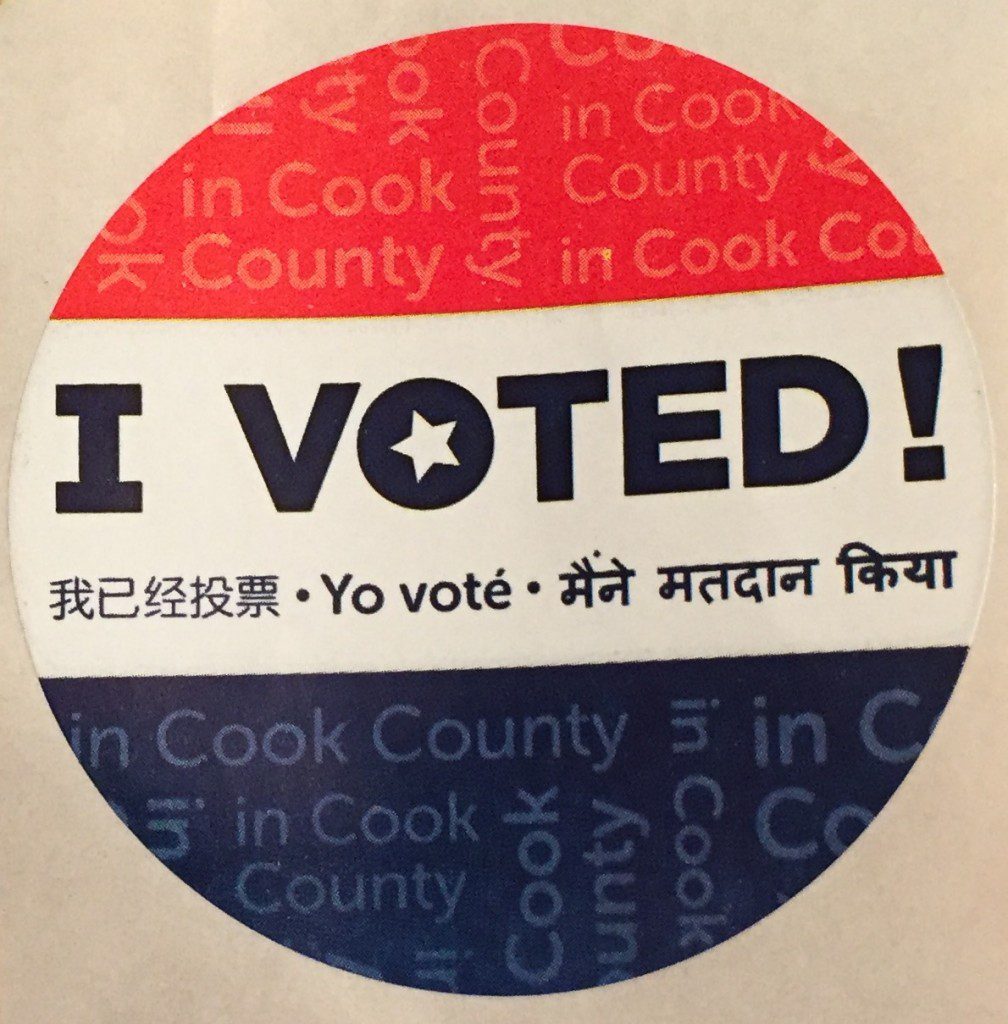9:35. Back from the band concert. (And, yes, this was a concert with three bands, so each time they changed, and pretty much any time there was a pause, I checked Real Clear Politics.)
Ohio goes to Kasich, by a surprising large margin, 45% to 37% at this point, with 65% of the vote in.
Trump trounced all the contenders in Florida, 46% compared to Rubio’s measly 27%. How Rubio thought he was going to narrow the gap is beyond me. Yes, he didn’t want to give up before his home state voted, and maybe it wouldn’t have mattered anyway, but it’s still painful to see Trump gain all Florida’s delegates.
North Carolina is a bright spot, since it’s proportional, and Cruz is only slightly behind Trump, 37% to 41%.
Illinois? I’m dumbfounded that Trump is so far ahead of the others — 40% compared to Cruz’s 29%. But this is one where Kasich has a significant number, 20%, so acted as spoiler.
And Missouri? It’s very close right now, but, according to another site, The Green Papers, it’s winner take all by congressional district, plus a bonus for the state winner-take-all, and Cruz’s lead is concentrated in one district only. But only 55% of the vote is in, so there’s still some modest chance.
9:45
My husband is watching Fox News (yes, he likes to think that he’s watching it in an ironic sort of way), and they’re reporting that Ted Cruz now has a slight lead.
Rubio has also withdrawn. Finally! But is it too late?
Also, for discussion: a Slate piece by Reihan Salam, “Mitt Romney Should Run for President as a Third-Party Candidate.” He’s their token conservative, so this isn’t just a joke piece. He says,
There are a huge number of voters who are desperate for a different candidate. A recent NBC/Wall Street Journal survey reported that two-thirds of registered voters can’t see themselves supporting Trump while 56 percent feel the same way about Hillary Clinton. Among Republicans, 43 percent hold a negative opinion of Trump, and a quarter believe that a Trump victory would “mostly bring the wrong kind of change.” In a Trump versus Clinton race, anti-Trump conservatives might be tempted to find a hard-right candidate to serve as their champion, but they’d be wise to find someone who could plausibly attract centrist voters and who would have some meaningful base of support. Romney fits the bill perfectly.
Who would you pick as a centrist third party candidate?
10:22
No movement in the returns.
Ramesh Ponnuru offers his thoughts at Bloomberg View, in “A Fair Way to Choose a Republican Nominee.”
Different rules, as Francis Barry has written, could make it more likely that in the future party nominations will go to candidates with majority support. States could, for example, hold runoff elections between the top two candidates in a primary. Or they could hold “instant runoffs.” Take a race with three candidates. Voters could rank those candidates. If none of them got 51 percent of voters to say he was their first choice, the candidate with the fewest votes would be eliminated. Then his voters would be reallocated to their second-choice candidate. The winner would then be preferred by the majority. . . .
It’s a process that would generate a majority for a candidate automatically: There would no need for multiple ballots, and thus no politicking between rounds of voting. The process would also be formally neutral. My guess is that most of the delegates who are not pledged to either Trump or Cruz will prefer the senator to the billionaire, and so the process will work to Cruz’s advantage. But it is certainly possible that Trump would win the instant runoff — and even possible, if less likely, that a third candidate could.
In Germany, on Sunday, I observed that the ironic result of the support for far-right, immigration-opposing Euroskeptic Alternative for Germany was that center-left parties won the day; since AfD is to toxic to build a coalition with, the left and center-left have a greater share of the coalition-able vote. With our two party system, just the opposite is occurring, as Trump’s rise, and a center-right split too many ways (and that counts Cruz as “center-right” because he’s the desperate second choice of center-rightists!) — as well as the pull to the Left among the Democrats — is dismantling the center, and there’s no effective way for center-left and center-right to come together.
(Image: own photograph)













